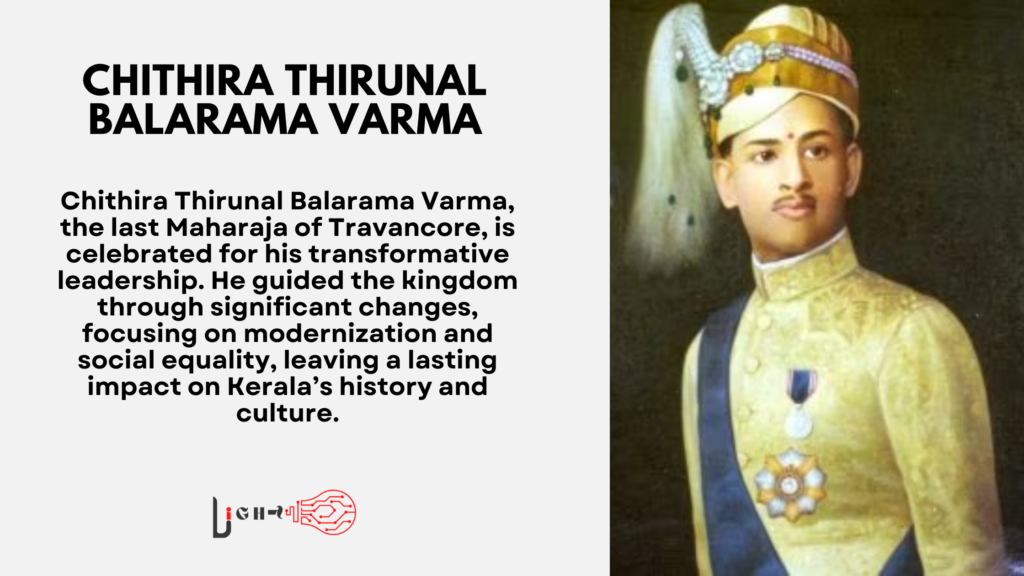Chithira Thirunal Balarama Varma, the last ruling Maharaja of Travancore, is remembered as a transformative figure in Kerala’s history. He ascended the throne during a time of significant political, social, and economic change, navigating challenges with a focus on modernization and social equality. Known for his visionary policies, Chithira Thirunal left an enduring legacy that still resonates in Kerala’s cultural and social landscape today.
Early Life and Ascension to the Throne
Born on November 7, 1912, Chithira Thirunal hailed from the prestigious Travancore royal family. He was thrust into leadership at a young age after the untimely death of his predecessor. His early education emphasized modern values, science, and governance, thanks to his tutors and the family’s progressive approach to education.
His formal ascension to the throne occurred in 1931 when he was just 19 years old. Despite his youth, Chithira Thirunal took on the responsibilities with a sense of duty to improve the lives of his subjects. Under his reign, Travancore underwent a transformation in its social and administrative structures, with a focus on inclusive policies and improved welfare.
Major Reforms and Contributions
Chithira Thirunal’s rule is marked by several key reforms that have since become historical milestones in Kerala. His policies emphasized equality, modern education, and health care as central to social progress, a vision that was unique among Indian princely states of the time.
P. V. Benjamin: Pioneering Scientist of India’s Scientific Renaissance
To know more click here:https://light.vintbit.com/kerala-history/p-v-benjamin-pioneering-scientist/
Temple Entry Proclamation
One of the most significant reforms under Chithira Thirunal’s rule was the Temple Entry Proclamation of 1936. This landmark decision allowed members of all castes to enter temples in Travancore, a move that broke centuries-old caste-based restrictions. The proclamation was a bold statement on social justice and was widely celebrated as a progressive move in the fight against discrimination.
The Temple Entry Proclamation is often regarded as Chithira Thirunal’s most enduring legacy, influencing similar reforms across India. By challenging social norms, he paved the way for greater social equality in Travancore, earning respect and admiration across the country.
Modernization of Education and Health
In addition to his social reforms, Chithira Thirunal prioritized the development of education and healthcare. He expanded access to schools and introduced new curriculums that included subjects like science and humanities, which were relatively rare in Indian princely states at the time. The Maharaja’s policies led to an increase in literacy rates, empowering his people with knowledge and skills necessary for a changing world.
Chithira Thirunal also focused on healthcare, establishing hospitals and improving public health initiatives. His investments in health infrastructure meant that Travancore’s people had better access to medical facilities, which led to a rise in the overall health standards in the region.1
Legacy of Chithira Thirunal Balarama Varma
The legacy of Chithira Thirunal Balarama Varma endures in Kerala’s educational, social, and cultural institutions. His progressive policies laid the foundation for modern Kerala, establishing a culture of inclusivity and innovation. Even after India’s independence, his contributions have remained integral to Kerala’s development.
Through his dedication to social justice, education, and healthcare, Chithira Thirunal Balarama Varma’s impact is felt across generations. His legacy reminds Kerala of a time when leadership meant prioritizing the welfare of people, a principle that continues to inspire leaders and citizens alike.

